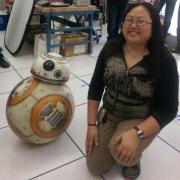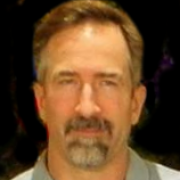Presentations

Virtualization was the next Big Thing. Then cloud. Now, containers are at the peak of hype, led by the excitement surrounding Docker and containers. Project Atomic hopes to temper innovation with better management and control, and it's not alone: CoreOS, Docker's suite of enterprise products, and most recently, Ubuntu's Ubuntu Core all hope to capture this market. But what is the market? Is container technology the best plan for DevOps and an increasingly cloud-oriented IT?
Database servers have hardware requirements different from other infrastructure software, specifically unique demands on I/O and memory. This presentation covers these differences and various I/O options and their benefits. Topics include solid-state drives (SSD), battery-backed RAID, controllers, and caching.

Open Source tools are incredibly popular in the DevOps community. Easily obtained, shared, and modified, and can help to identify and rapidly fix issues that affect your work. While many organizations are increasingly participating in open source, they often don't see the parallels between the practices of open source communities and successful DevOps-practicing organizations. This session provides an overview of DevOps, and provides tips for how you or your organization can start applying these shared habits today.

DevOps is often heralded as the solution to all the problems within IT. However, once the dust settles and the new tools are implemented, the challenging problems begin.This talk discusses many of the challenges as observed in small and large companies, and how to leverage various technologies like ChatOps to compliment and grow technical and non-technical teams alike.

The DevOps community has been on a 5-year journey of discovery. Let’s celebrate the progress and address what remains to be done. Most importantly, let’s look at the ingredients behind the success stories and ask the question being whispered in the halls of so many companies: “So much is different now, but has anything really changed?”.

Users of distributed version control tools like Git and Mercurial only need a small set of commands to do their work. A Mercurial administrator needs a fundamental understanding of distributed version control systems (DVCS), Mercurial, and even Git. Join Lan as she explains the evolution of source control systems, the fundamental building blocks of distributed version control, and the many different ways one can mess up a Mercurial repository. There will be the requisite comparison between Git and Mercurial, which will focus more on their similarities than their differences.

Microservices architectures break complex applications down into a number of smaller independent processes, communicating using APIs. This allows each of those processes ("microservices") to be written using a different framework, in a different language, by a different team. As a result, each microservice can be designed, tested, deployed, and even refactored independently. This reduces communication and synchronization overheads considerably, and leads to a more efficient development process. These architectures, however, bring new issues; Docker can address some of them.

Writing a new application for the cloud allows you to use cloud abstraction libraries like Fog, Libcloud, or Jcloud for multi-cloud compatibility. But what if you have legacy applications that need to be moved to the cloud, but that are not practical to re-write? Containers to the rescue! Using Docker containers combined with Libswarm/Swarmd, you can run your application on a variety of target Platforms, including OpenStack clouds. The same containers you run in public clouds can also be used in your own OpenStack private cloud. Join us to learn about the exciting hybrid possibilities.

Running services in virtualized systems provides many benefits, but has often presented performance and flexibility drawbacks. This has become critical when managing large databases, where resource usage and performance are paramount. We will explore a case study in the use of Docker to roll out multiple database servers distributed across multiple physical servers.


